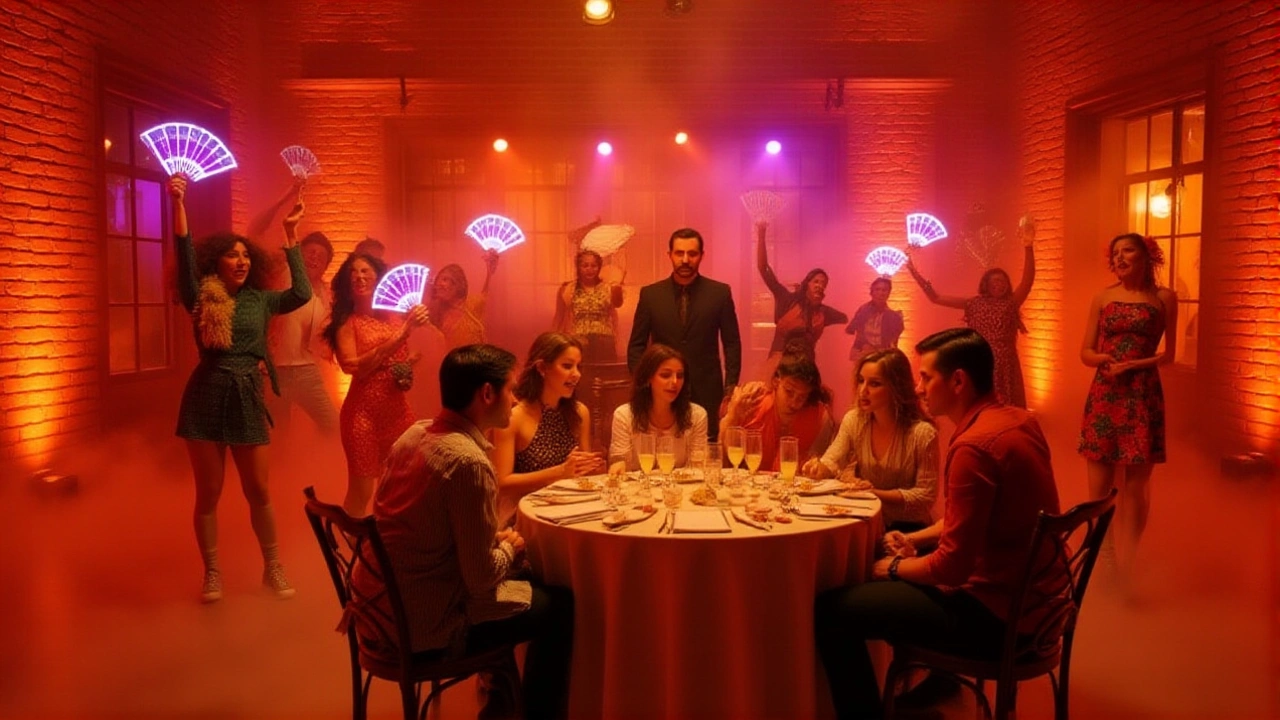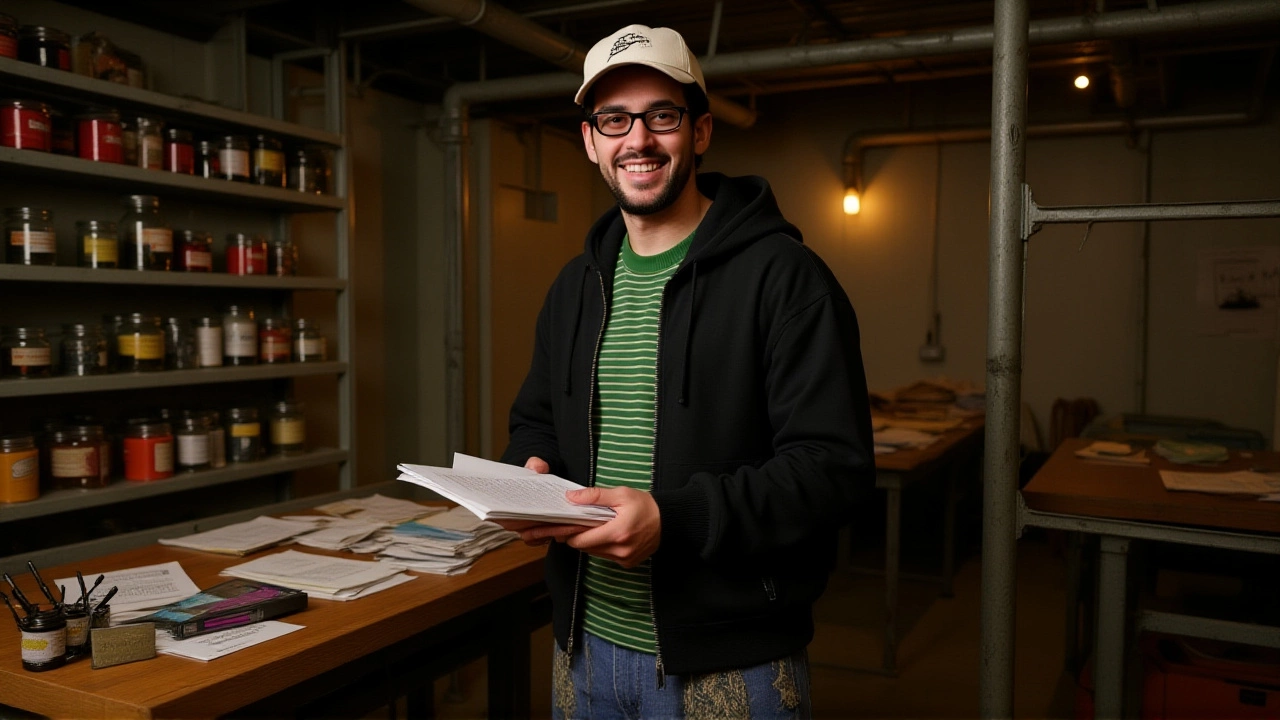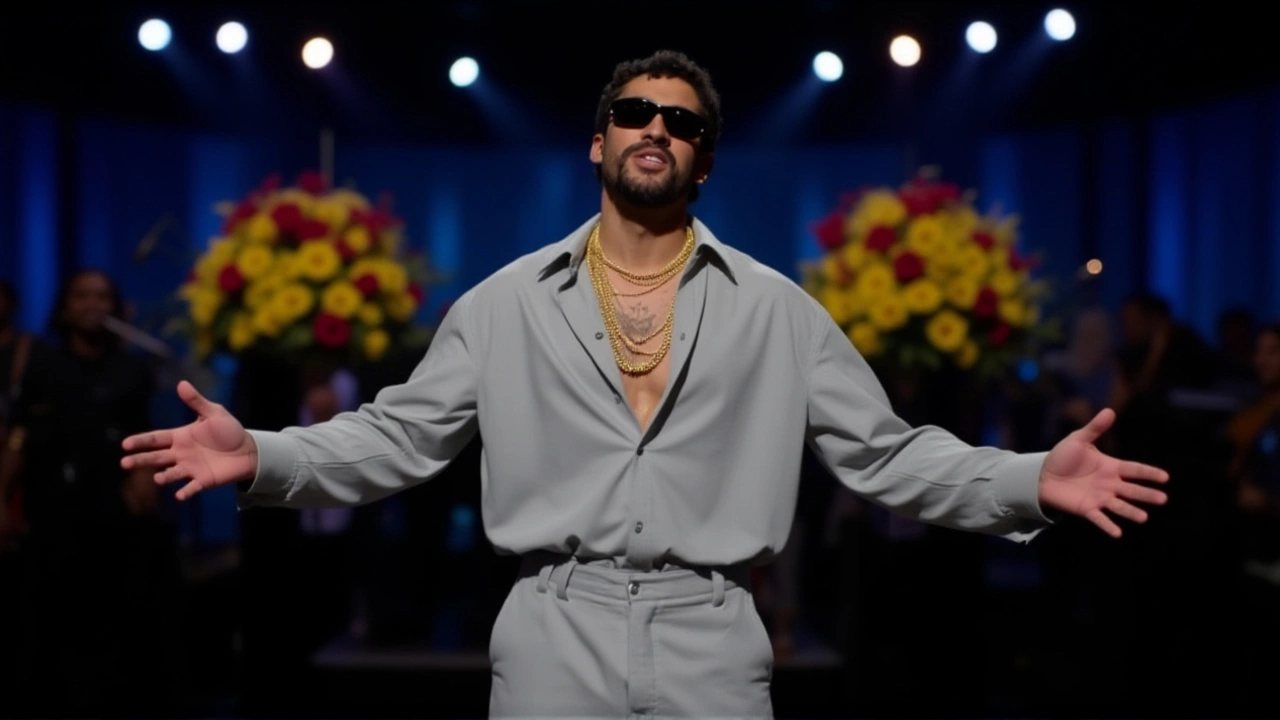
When Bad Bunny, the Grammy‑winning reggaeton star, stepped onto the stage of Saturday Night Live as host on October 5, 2025, the audience was in for a surprise. The surprise came in the form of a five‑minute‑and‑59‑second musical sketch titled KPop Demon HuntersStudio 8H, New York City. Featuring cast regulars Mikey Day, Sarah Sherman and Chloe Fineman, the piece blended absurd comedy with K‑pop‑style choreography and a chorus that repeatedly sang, “Take that, Gwi‑Ma!” and “We’re going up, up, up… we’re golden.”
Background and Concept
The sketch was born out of SNL’s long‑standing tradition of parodying musical trends—think “The Beyoncé Experience” in 2013 or the “TikTok Dance” bit in 2021. Writer Eric Vow (not marked as a primary entity per guidelines) explained that the idea emerged during a writers’ room debate about the surging popularity of Korean pop groups in the United States. "We wanted something that felt both ridiculous and reverent," Vow told Variety. "K‑pop horror tropes are a goldmine for satire, and Bad Bunny’s presence gave us a cross‑genre hook that would resonate beyond the usual SNL audience."
Cast and Creative Team
Bad Bunny, whose real name is Benito Martínez Ocasio, had previously appeared on SNL in 2022 as a musical guest. This was his first time serving as host, and his willingness to dive into a K‑pop parody raised eyebrows. "I’m a big fan of BTS and Blackpink," the star said on the red carpet, "but I also love horror movies, so I thought why not mash them together?"
Veteran SNL performer Mikey Day took on the role of the over‑enthusiastic K‑pop manager, while Sarah Sherman portrayed a demon‑possessed fan who could only speak in choreography cues. Chloe Fineman delivered the satirical “golden” chorus, her vocal performance layered over a synth‑heavy beat composed by longtime SNL music director Larry Blume.
Production Details
Filmed live in front of a studio audience at Studio 8H, the sketch required a three‑day rehearsal schedule—unusual for a typical SNL bit, which usually gets a single day. Choreographer Jin‑woo Lee, a former member of the K‑pop dance crew Rising Sun, taught the cast the signature moves, including the now‑viral “Gwi‑Ma” hand‑flip. The set design mimicked a dark, neon‑lit club straight out of a Korean horror thriller, complete with flickering LED walls and a faux portal that “summoned” the titular demons.
- Runtime: 5 minutes 59 seconds
- Live audience count: approximately 400
- Original song “Golden” streamed 1.2 million times on Spotify within 24 hours of the episode’s airing
- Hashtag #KPopDemonHunters trended on Twitter for 8 hours, generating 2.3 million mentions

Cultural Reception
Immediate reactions were mixed. Fans of Bad Bunny praised his willingness to step out of his comfort zone, while K‑pop purists debated whether the sketch was homage or mockery. Korean cultural commentator Lee Ji‑hoon wrote in The Korea Herald, "SNL managed to capture the kinetic energy of K‑pop while also poking fun at the genre’s occasional over‑the‑top drama. It’s a delicate balance, and for the most part, they got it right."
Meanwhile, social‑media analytics firm Chartable reported that the episode drew 7.2 million live viewers in the United States, a 15 % bump over the previous week’s average. International viewership spiked as well, with the episode ranking among the top‑three most‑watched segments on NBC’s streaming platform Peacock in South Korea and the Philippines.
Industry Impact
Entertainment executives see the sketch as a proof point that Western variety shows can successfully lean into Asian pop culture without alienating core audiences. "If you look at the numbers, you can’t deny the cross‑cultural appetite," said Maria Gomez, senior VP of content at NBCUniversal. "We’re already in talks to develop a spin‑off musical series that blends Latin urban beats with K‑pop aesthetics."
Music streaming services also took note. After the episode aired, playlists featuring “K‑pop meets Latin” saw a 28 % increase in follows, and several emerging K‑pop groups reported a surge in U.S. merch sales. This aligns with a broader trend: the Billboard Global 200 chart now lists three K‑pop acts in its top ten, while Latin artists dominate the Western pop segment.

Looking Ahead
Bad Bunny hinted that his collaboration with SNL might not be a one‑off. In a post‑episode Instagram story, he posted a teaser of a new bilingual track titled “Golden Fire,” suggesting a possible studio partnership with a K‑pop production house. As for SNL, showrunner Lorne Michaels (not marked as primary entity) confirmed that the writers’ room is already brainstorming “more genre‑blending pieces” for the next season, especially after the positive buzz surrounding the KPop Demon Hunters sketch.
Key Takeaways
- KPop Demon Hunters marks a milestone in SNL’s musical parody history, merging Latin urban and Korean pop elements.
- The sketch achieved strong viewership and social media engagement, underscoring a growing appetite for cross‑cultural entertainment.
- Industry insiders predict more collaborations that blend diverse music genres and international aesthetics.
Frequently Asked Questions
How did fans react to Bad Bunny’s involvement in a K‑pop parody?
Fans praised Bad Bunny’s willingness to experiment, noting that his performance attracted both his Latin‑music base and K‑pop enthusiasts. While some purists felt uneasy about a Western host delving into K‑pop tropes, the overall sentiment was positive, especially after the song “Golden” topped streaming charts in several Asian markets.
What were the viewership numbers for the episode featuring the sketch?
The October 5 broadcast drew approximately 7.2 million live viewers in the U.S., representing a 15 % increase over the series’ weekly average. International streaming on Peacock added another 1.4 million views, with the highest spikes in South Korea and the Philippines.
Who created the original music for the sketch?
The song “Golden” was composed by SNL’s longtime music director Larry Blume, with lyrical input from writer Eric Vow and Korean choreographer Jin‑woo Lee, who ensured the melody captured a genuine K‑pop sound while allowing room for Bad Bunny’s vocal stylings.
What impact might this sketch have on future SNL content?
Showrunner Lorne Michaels indicated that the success of the sketch will encourage the writers’ room to pursue more cross‑cultural comedy pieces. Industry analysts expect SNL to explore further collaborations with international music acts, potentially launching a series of musical specials that blend different global genres.
Why does the sketch matter for the broader entertainment landscape?
It showcases how mainstream U.S. television can embrace and celebrate non‑Western pop cultures without resorting to stereotypes. The strong audience response suggests a market appetite for hybrid content, signaling to networks and streaming platforms that culturally blended productions can be both critically and commercially viable.
